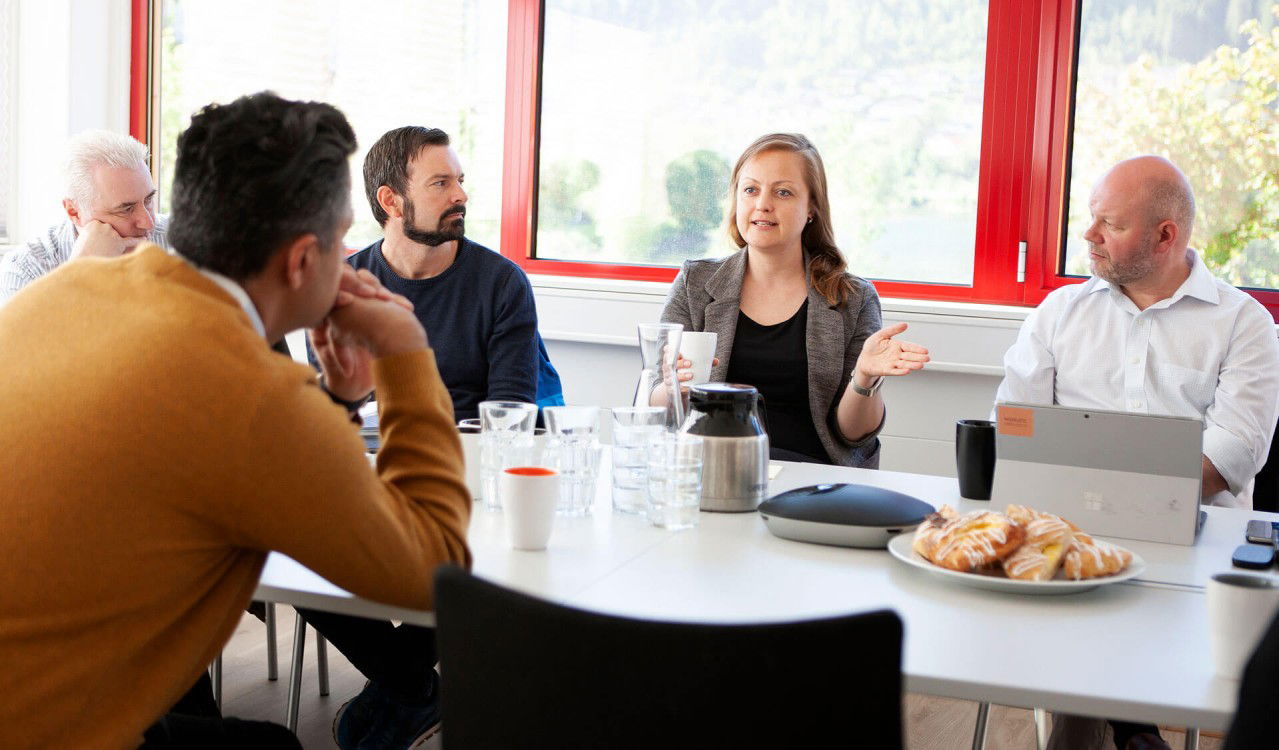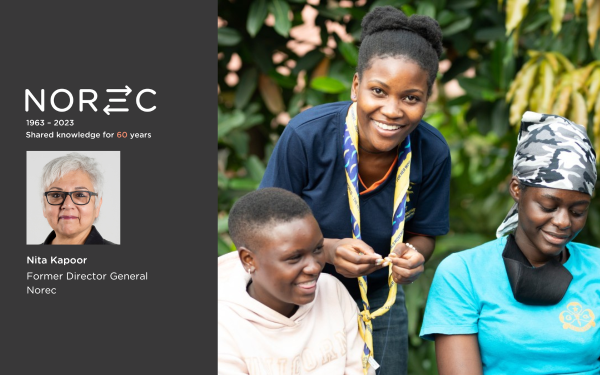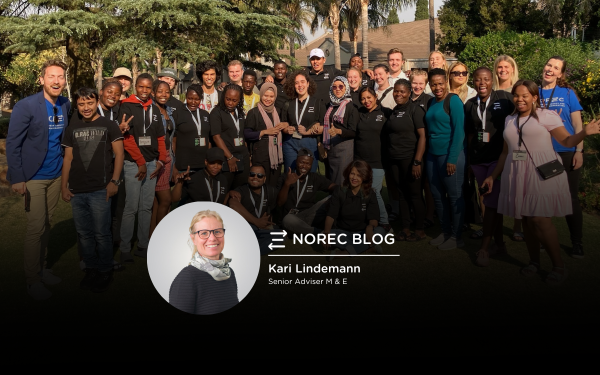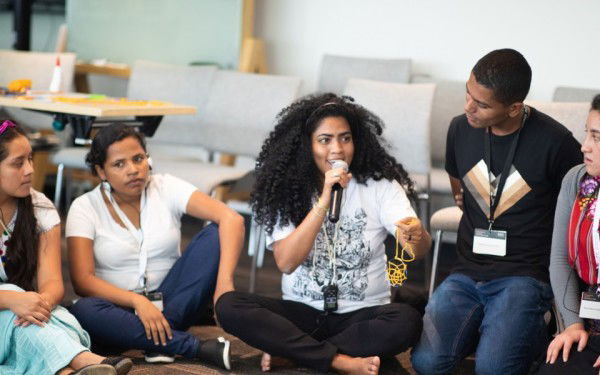20 years of mutual exchange
26. August 2020
20 years ago this month, Norec was relaunched by the Kings Council of Ministers. Since then, we have facilitated exchanges for 10,000 individuals, and seen that partnerships, equality and reciprocity are key for getting results in development.
Norec’s budget constitutes just 0,5 % percent of the overall funds that Norway allocates to development. Through Norec’s annual budget of 135 million NOK, we support around 80 projects. This means that our support can only act as a supplement to other types of development co-operation, and not on a large scale. Our specialty is mutual exchange of staff and volunteers, and this must be the foundation of all the projects we support.
Important health-projects
An exchange means that both parties involved trade staff and knowledge. A mutual partnership means that all parties contribute and get something in return. All partnerships must lead to mutual reinforcement of capacity and ability to learn.
An example: Haukeland University Hospital has for years had an exchange with hospitals in Tanzania and South Africa. Doctors from Norway have gone to South Africa to get practical training in trauma care from the local environment, whereas South African doctors have learnt the same in Norway but with focus on the Norwegian context and procedures. Thus, everyone will teach and be taught something.
Currently, Norec’s health-portfolio is constituted of 15 projects. These vary from neonatal care, to health services in marginalised communities, to improvement of conditions for people living with disabilities, to combating leprosy. All these projects have different frameworks in terms of content, timelines, duration and competency levels. But what they have in common is the fact that each partner sends and receives competence and knowledge, from South to North and vice versa.
Time – a key factor
20 years of exchange means 20 years of experience. We know that we achieve more and sustainable results through long-term exchanges than through short term visits. If we want to achieve reciprocity in partnerships, we need trust, and trust can only be built over time.
Participants on exchange need time to get used to a new country, a new culture, language and working context.
Our partners have exchanges ranging from 3 to 18 months, and the need for this is assessed by Norec on a case-by-case basis. In our experience, a participant needs to spend three months at a minimum on exchange to have any kind of benefit.

Young and competent
Focusing on youth competency is part of our mandate. Our upper age limit of 35 is based on young people worldwide being excluded from the professional sphere. Today’s youth have achieved the highest education level ever, but even so, they are also statistically highest in unemployment and underrepresentation.
When employers must choose between a newly-educated person without any previous work experience and a person with 20 years of experience, the experienced candidate is usually selected. This is where Norec and Norway try to make a difference: exchange of professionals and volunteers gives young people valuable international exposure and better professional opportunities. We also note that the long-term effect of the exchange is maximised when the participant returns to the home-institution from which she was sent out. Young employees have a longer career ahead of them, and thus more time to implement what they have learnt through the exchange.
Our age-limits are not written in stone: if the competency of a certain participant is vital for results, age comes second. This is a flexibility we offer in all projects, even though our main focus should be towards young participants.
In November 2019, the consultancy firm KPMG made a report at the request of Norec to map experiences of exchange between public institutions. Reciprocity as a key-factor in the success of projects was one of the main findings. Challenges were also found, and Norec is working systematically to address those challenges.
Norec is a dynamic force within development, and our model is developing as per official Norwegian development policies. We should be flexible, while ensuring that all applications for our support are treated in a uniform way. Last but not least, reciprocity should form the foundation of all projects.
Marit Bakken
Avdelingsdirektør program, Norec




